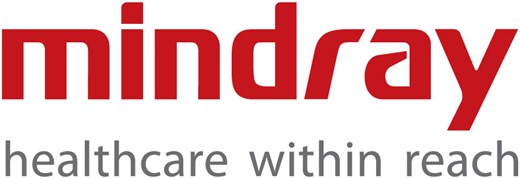Country selector

North America
Country Selector: North America


Mindray monitoring and Ascom alarm management make a powerful combination, helping to reduce the risk of alarm fatigue and contributing to even better patient safety.

The Challenge
Alarm fatigue is a growing concern in healthcare. Put simply, alarm fatigue refers to sensory overload experienced by clinicians as a result of exposure to an excessive volume of non-clinically significant alarm notifications. The phenomenon can lead to clinicians ignoring alerts, or even in severe cases deactivating or silencing clinical alert equipment/devices. The scale of the problem is illustrated by a study conducted at a 15-bed unit in Johns Hopkins Hospital. The study documented an average of 942 alarms each day—or one every 90 seconds1. According to The Joint Commission, 85-99% of alarm notifications do not require clinical intervention2.
The Solution
Properly configuring alarm notification settings can significantly reduce the frequency of clinically insignificant alerts. The Boston Medical Center, for instance, found that by switching the cardiac monitor threshold from “warning” to “crisis,” daily audible alerts dropped on averge from 12,546 to 1,424—an 89 percent decrease. Mindray provides an alarm analysis tool that collects alarm notifications from bedside equipment; not only patient monitors, but also ventilators, infusion pumps, etc. By statistical analysis of the alarm notifications data, we can help you optimize the alarm configuration according to your situational needs, thus helping to reducing the occurrence of clinically insignificant alerts.
The Ascom alert management system can further filter, combine, and prioritize alerts from Mindray’s monitoring system based on predefined policies and send them to the designated care providers. This turns the threshold-based alarm notifications into actionable alerts based on clinical understanding of whether an alert or combination of alerts require immediate actions from staff.
[1] Liz Kowalczyk, "Patient alarms often unheard, unheeded" Boston Globe, Feb 2011.
[2] Patient Safety Advisory Group, "Medical device alarm safety in hospitals" Sentinel Event Alert. 2013 Apr 8;(50):1-3.

Despite the greatly improved accuracy of alarm notifications, the traditional way of presenting alerts via bedside equipment is not the most effective method to gain the attention of increasingly mobile clinicians. With the Ascom Unite alarm management system however, you can assign clinicians to specific patients and send notifications of monitor alarms directly to their mobile devices. Should a designated be unable to respond appropriately, the alert is routed to pre-defined colleagues. This helps maximize staff awareness of changing patient conditions, and helps ensure prompt and appropriate responses and interventions.
Care providers can also use the Ascom Unite alert management system to view waveforms and gain access to key data in order to achieve a deeper understanding of an alert’s context and significance. Using Mindray MobileViewer on their mobile devices, care providers can also check patients’ real-time monitoring parameters and live waveforms anytime while moving around their facility. This makes it easier for the care providers to handle alarm notifications as efficiently as possible.

The Mindray and Ascom solution described here is currently available in the EU/EFTA, MEA and APAC regions.
Founded in 1991, Mindray is one of the leading global providers of medical devices and solutions. Firmly committed to our mission of “sharing medical technologies with the world”, we are dedicated to innovation in the fields of Patient Monitoring & Life Support, In-Vitro Diagnostics, and Medical Imaging Systems.
Headquartered in Shenzhen, China, Mindray possesses a sound global R&D, marketing and service network with subsidiaries and branch offices in 39 countries in North and Latin America, Europe, Africa and Asia-Pacific, as well as 31 branch offices in China. To date, Mindray has nearly 7,600 employees.
Inspired by the needs of our customers, we adopt advanced technologies and transform them into accessible innovation, bringing healthcare within reach. While improving the quality of care, we also help reduce its cost, making it more accessible to a larger part of humanity. Today, Mindray’s products and services can be found in healthcare facilities in over 190 countries and regions. In China, Mindray’s products and solutions can be found in nearly 110,000 medical institutions and 99% of Class A tertiary hospitals.
